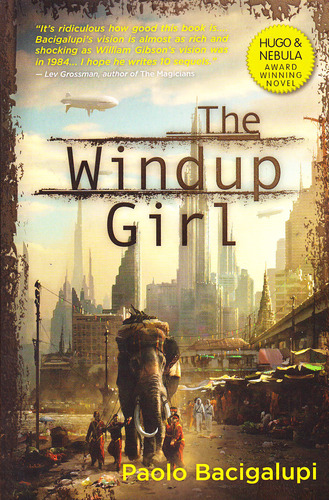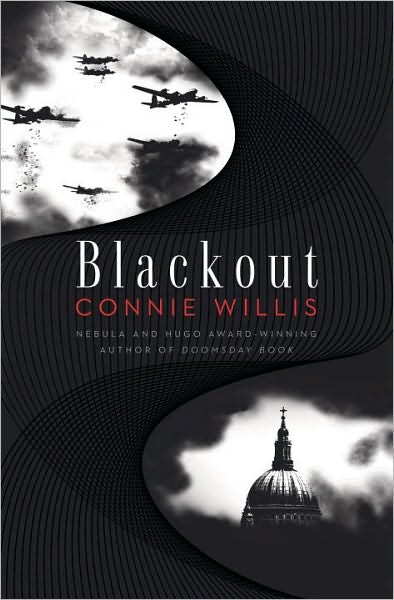My introduction to Connie Willis was different from many of my introductions to other authors. Last year, I was in my computer science class waiting for it to start and the professor was making small talk with the students in the front row. I was, of course, reading. Suddenly, something caught my ear and I looked up to see the professor on Wikipedia looking a the book
Passage by Connie Willis and talking about how much he liked it. He then went on to look at
A Fire Upon the Deep by Vernor Vinge and
The Lifecycle of Software Objects by Ted Chiang. Having read all three by now, I can authoritatively say that all three are good books.
A few weeks ago, I learned that Connie Willis was going to be giving a talk and signing books near where I live. Since I had enjoyed
Passage so much I thought she would be interesting to hear speak and it would be fun to have my book signed by the author. A few days later, I was in Elliot Bay Books in Seattle (one of the best new book stores I have ever been in) and in their award winning science fiction section they had a Connie Willis book entitled
Blackout. Since I was already going to see her (and already going to spend a good portion of my paycheck at Elliot Bay), I decided to pick it up and try to read it before the signing.
Upon starting it, I discovered that the book was actually part of a duology, the second part entitled
All Clear. The duology was meant to be one book but, unlike some authors I could name, Connie Willis has some sort of compunction about publishing 1000+ page paperback books. It seems that the only people who make a distinction between the two books are publisher. Everyone I have talked to about them, including her, refers to them as "Blackout All Clear". The two books even read better as one, just pick up All Clear as soon as you finish Blackout. I cannot imagine waiting in between these. Therefore, I am going against the usual format of reviewing books one at a time and am reviewing this duology as a single entity (that, and I couldn't put them down long enough to write a review about just the first book).
The story, like many stories before it, is about time travel. The premise is that, in the year 2060 Oxford is sending historians back in time to study the past and report on it. The story's three main characters are all sent back to England near the beginning of World War II. It is a fantastic rendition of the war from a British civilians perspective. However, you do not have to know about WWII to enjoy this book; the characters are marvelous and easy to relate to.
In the vast majority of books that I read, I am able to maintain a steady distance, I suspend my disbelief, but rarely do characters emotional trauma bother me after I put the book down. This book was the complete opposite of that. When characters in the book argued it would stress me out, let alone when they were put in life threatening situations. I found myself crying at the (rather emotional) ending of the series.
I don't want to give away too much of the story, but I have to say that it is, so far, my favorite book of 2012. There is something in this book for everyone, be they history buffs, sci-fi fans, character lovers, or what have you. It was clearly painstakingly researched and well thought out. Having met the author, I can say that she is also an excellent human being and I will be reading more of her books in the future. When she signed my copies of the books she put little Brittish WWII slogans above the signature; stuff like "Keep calm and carry on" and "Do your bit!"
At the signing, there was also a question and answer session. I don't remember the question that was asked to provoke this response, but she admitted that she had to rewrite the almost the entire story when she got halfway through because she decided that she had the wrong ending. When she was signing my books, I asked her what the "wrong ending" would have been and she was gracious enough to tell me.
Overall, I would give this duology a
98%.



